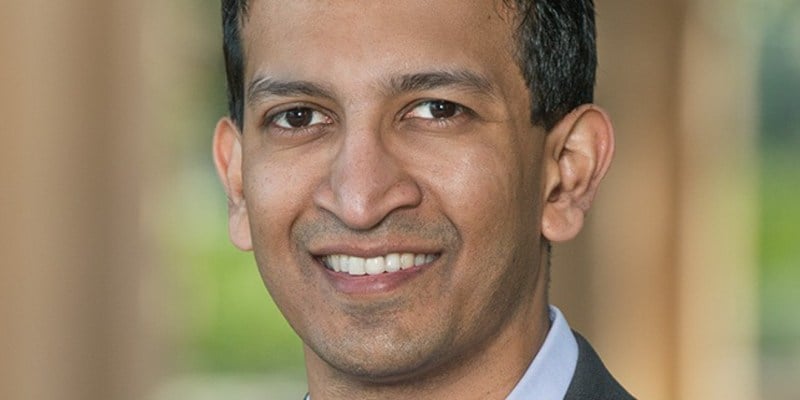Last month, economics professor and Senior Fellow at the Stanford Institute of Economic Policy Research (SIEPR) Raj Chetty published race and social mobility research showing that African-American boys — regardless of class — are much more likely than their white counterparts to end up poor.

Chetty, along with researchers from Harvard University and the U.S. Census Bureau, showed that if a black boy and a white boy have the same income and educational background, the black boy is much more likely to end up with a lower income while the white boy is more likely to achieve upward economic mobility.
This research is novel because instead of comparing all black and white boys against each other, it compares black and white boys from similar economic backgrounds using extensive census data.
The income gap between white and black men has been well-documented in the existing academic literature on the subject. However, historically, people have chalked this up to the fact that black men, on average, are more likely to grow up low-income, and people who start off low-income have a harder time ending up high-income.
“[This research] is able to get at this problem that a lot of critics of this research bring up, which is that on average, black families are poorer, so maybe you’re not comparing apples to apples,” said Sarah Merchant, a SIEPR research assistant who worked on the paper. “But what we’re saying is no, we’re comparing rich black families to rich white families.”
Chetty’s research shows there is something apart from class that causes the income gap between white and black men. Even when black boys grow up rich, they are just as likely to end up poor than stay rich, while rich white boys are five times more likely to stay rich than they are to end up poor.
While this research is the first to empirically demonstrate this claim, these conclusions are intuitive to many black men on campus.
“I’d be hard-pressed to find any black man who wouldn’t intuitively know that life outcomes are pegged to the color of our skin,” said Sam Feineh ’18, a black student on campus.
The data also shows that white men are more likely to achieve upward mobility than nearly every other racial subgroup; only Asian-Americans overall earn more than whites in adulthood. Asian-Americans who are not first generation immigrants earn about the same amount as whites. Black and white women, Hispanics and Native Americans are all less likely to achieve upward mobility than their white male peers. Nonetheless, the gap in economic mobility between white men and black men is by far the largest.
“The reason we focus on black men is when we look at certain outcomes [is because] they do look like an outlier relative to all the other groups,” Chetty said during an interview with the podcast Off-Kilter.
He added that black men face a unique set of challenges compared to other marginalized populations.
“Black men are significantly less likely to be employed than black women, they are significantly more likely to be incarcerated, they’re significantly less likely to complete high school. And so it does seem like there are a special set of challenges confronting black men. That is not to say that there’s no issue for black women or that gender equity is not an issue, that’s just not the focus of this study,” Chetty explained.
While the data can point out that there is something specific about being a black man that makes it relatively harder to achieve upward mobility, according to the paper, it is harder to pinpoint what exactly that specific variable is.
However, the data does allude to “evidence of something I think [black men] have already known,” Merchant said. The experiences of black boys themselves — the people constantly reckoning with racial dynamics that inevitably affect their experiences, and how people perceive them — can begin to give context to the outcomes the data present.
“I know when I first got [into Stanford], in Georgia, people would always ask me, ‘What sport did you play?’ It wasn’t enough that you were just an academic,” said Robert Ross ’21. “And then if you did tell them, ‘Oh, I’m not playing a sport,’ they would blame it on affirmative action.”
Marc Chappelle ’21 echoed Ross’ sentiments.
“I can never be sure about what assumptions people make about me,” said Marc Chappelle ’21. “How am I presenting when I’m walking down the street behind a white lady? Is she going to think that I’m a threat? Just the fact that I’m questioning that means I’m a product of real, societal, racial dynamics.”
Chapelle added that for him, some spaces at Stanford mute those racial dynamics, creating a “little utopia” for him to exist as a black man. He credited the Ujamaa student residence as one of those spaces.
“I knew [at Ujamaa] I would be around mentors that would advocate for me,” he said. “It’s the same idea behind going to an HBCU (historically black college or university).”
In keeping with this idea, other research has demonstrated that mentorship can cause positive outcomes for black boys. And Chetty’s work shows that the gap in future incomes of white and black boys shrinks in places where there are high rates of father figures. But the researchers could not find anything proven to close the gap altogether.
“The moral of the story is kind of bleak,” Merchant said. “Even at a place like Stanford, if you are a black male and you come from a low-income background, on average, people like you tend not to make as much as white people. That seems like a read of the data.”
On campus, black students are trying to beat these odds.
“I try to consciously entitle myself to things,” said Chapelle. “When I’m in a space I’m like, ‘Okay, you can take up space.’ I will make sure that I, and other people of color, take up more space than average – and feel unapologetic about that.”
Feineh said he is conscious about using the resources he has been afforded at Stanford to give back to his community.
“My mere presence at Stanford is, in many ways, a sign of eliteness. It’s not the norm that black men are supposed to be in.” he said. “That privilege comes with a responsibility to do something. For me, that responsibility means tapping into communities most affected by mass incarceration, and the school-to-prison pipeline.”
According to the paper, there are no clear, overarching policy solutions for this problem. However, Chetty added that the research makes it possible for policymakers to begin narrowing their field of focus.
“Thinking about socioeconomic class and neighborhood is not a substitute for thinking about race,” said Chetty. “We need to think about how to narrow racial disparities separately.”
Moreover, Merchant stressed her belief that there is still some hope contained in the data.
“This [data] is evidence to arm you, and to defend your lived experience,” she said. “You’re not just imagining this, this isn’t just media hype. What’s better is that everybody knows about it — it’s out in the open, it’s in the data.”
But some black men on campus are actively working against the numbers.
“Going through Stanford, you realize everything you’ve done up to this point has kind of defied all odds,” said Ross. “So you continue with that same mindset. I will not let some statistic determine me.”
Contact Adesuwa Agbonile at adesuwaa ‘at’ stanford.edu.
